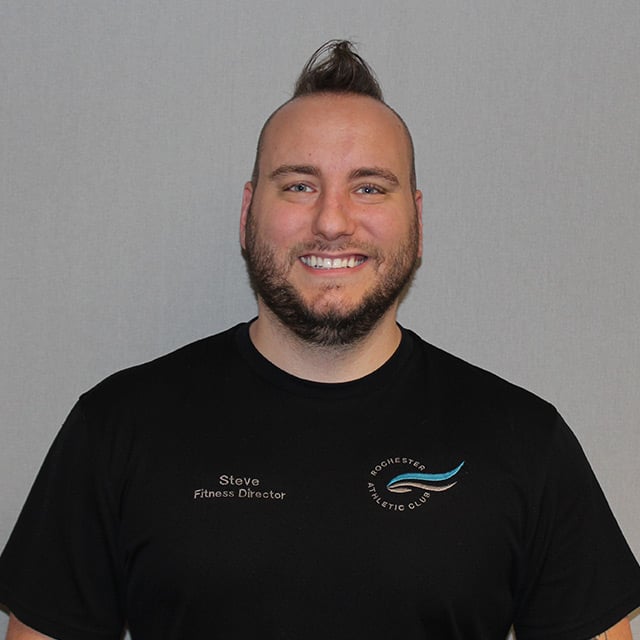Personal Trainer Notes: Physical Strength and How to Build It
Posted by Steve Boring on August 18, 2017
When you think of strength what is the first image that comes to mind? Whether the picture you conjure is of physical, mental or spiritual strength it is undoubtedly accompanied by thoughts of perseverance through a difficult task.
Have you ever had a moment in your life where you said “I wish I were a little weaker”? I’m going to go out on a limb here and think probably not. We often work very hard to become stronger, better versions of ourselves. Why is strength important in physical terms? Gaining strength can improve quality of life, improve our functional capacities, and just flat out make us feel better.
Strength is often forged on fires of challenge; where there are challenges there will be growth. I am reminded of the story of Milo of Croton. Milo was an Ancient Greek Olympian and the best wrestler of his day. While many of the stories about Milo are fabrications, one stands out. It is said that Milo carried a calf on his shoulders for a brief period of time every single day. As the calf grew, so did Milo. Eventually, Milo was carrying a full grown bull on his shoulders which he proceeded to eat before a competition…the entire bull! I’m not asking you to believe that the story of Milo and the Bull is true, but the concept is.
All too often I see people perform the same workout day in and day out. There are no real challenges within the workout, except perhaps an inner argument on whether or not to even work out. However, to create challenging components within your workout is to create an opportunity for growth. How can you be sure that your workout is going to give you more of the results you want? By taking advantage of progressive resistance.
Progressive resistance is a term that basically means to systematically add a little more resistance (and therefore challenge) into your workouts. If you look back at the initial story, you can see that the calf would be growing every day, adding a little more weight to Milo’s shoulders. Let’s step out of stories from antiquity and into the modern day gym. Using the squat as an example, a typical progressive resistance based program would look like this:
- Choose a weight for squats at which you can do 3 sets of 8 repetitions with good form.
- The next time you squat (24-72 hours later) add 5 pounds to your weight.
- If you cannot perform 3 sets of 8 repetitions (using good form), stay at that weight for your next workout.
- When you can perform the 3 sets of 8 repetitions, add 5 more pounds for the following workout.
The above example uses a medium rep range and a general compound exercise movement in the squat. This can be applied to any exercise, although you may need to choose a different increment, set and repetition scheme depending on the exercise and your physical goals. For example, a less experienced lifter may use a higher repetition range (12-15 reps), whereas a more experienced lifter may use a lower repetition range (3-5 reps).
Progressive resistance is a very simple, yet effective strategy to gain strength. It may not be flashy but it works and has been proven time and again. It has taken many (including myself) from novice to more advanced levels of strength without a lot of wasted time. Give this method of training a try and shake up your workout to create some challenge within it. You will be a stronger person for it!
If you are a Rochester Athletic Club member and you are new to lifting weights or if you would like assistance applying progressive resistance to your current routine, please contact one of our Fitness Associates at the Fitness Desk. You can also learn more about Fitness Floor services and assistance on our Fitness Floor page.

Steve Boring
Fitness Director Steve Boring, PhD is a retired competitive Strongman and Powerlifter. He has won multiple Bench Press Championships from State to World level. Steve’s passions are centered on fitness and his love of helping people reach their goals. His door is always open to talk about fitness, health, and lifelong strength!
Contact Steve Boring at (507) 287-9312.



